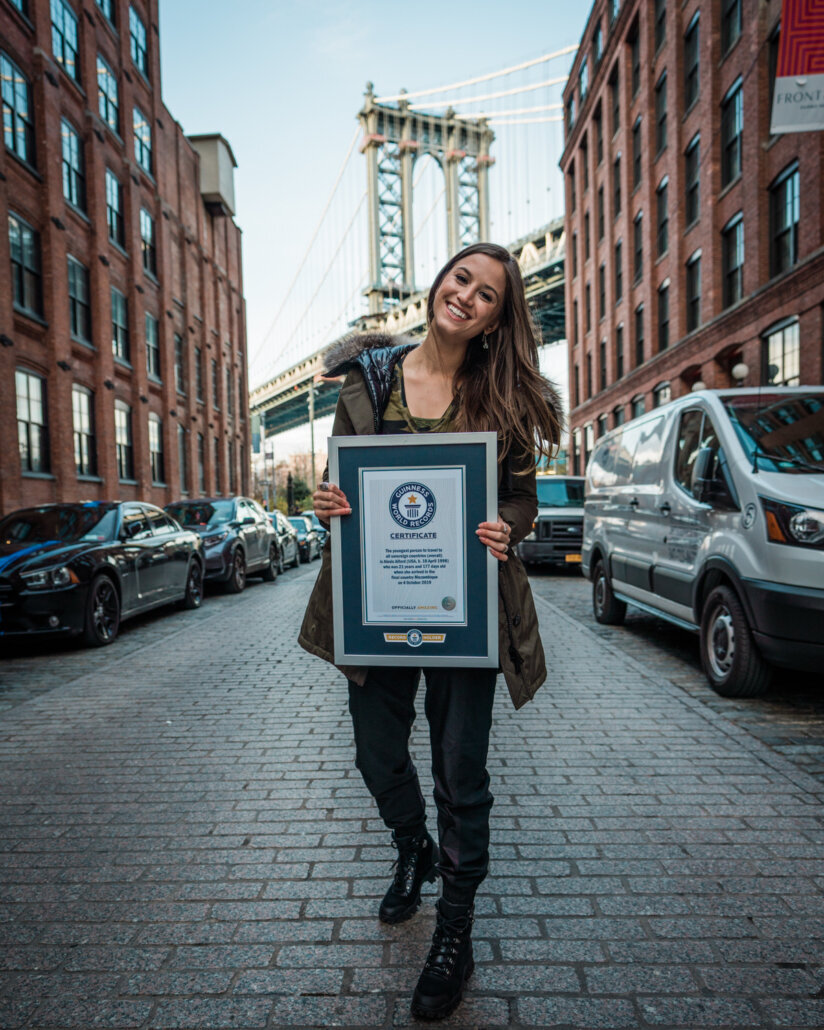Travel Requirements: Guinness World Record
Rules of the Guinness World Records
All of the following information has been provided by Guinness World Records regarding the mandatory guidelines required to break the world record for “Youngest Person to Travel to All Sovereign Countries”
Record definition
This record is for the youngest person to visit all the member states of the UN plus the Vatican (Holy See) and Taiwan (which are effectively sovereign, but not UN members). No other territories will be considered.
This record is to be attempted by an individual.
This record is measured in years and days.
Rules for Youngest person to travel to all sovereign countries
This record is for the youngest person to visit all the member states of the UN plus the Vatican (Holy See) and Taiwan (which are effectively sovereign, but not UN members). No other territories will be considered.
No person under the age of 16 may attempt this record. Documentary evidence of permission must be provided for any participants who are between 16-18 years.
A copy of the birth certificate of the challenger must be submitted with the record claim. If the person has been married, a copy of the marriage certificate is also required.
Visiting a country is defined as setting foot within its border. It is not necessary to remain in any country for any length of time. Video/photo evidence, at a recognisable landmark/border sign within each country must be provided. If this is not provided, the claim may be rejected.
The challenger must provide proof that he/she has used chartered/private transport (i.e. taxi, boat, etc.) and give a thorough explanation as to why it was used. At no point can the challenger be in control of the vehicle used (i.e. driving). If it is found that more than 20% of the journey was travelled using chartered transport or that the challenger was in control of any vessel chartered, the claim will be rejected.
Receipts and/or tickets for all journeys must be obtained and should be submitted in chronological order (i.e. making clear exactly how the travel progressed). There should be no significant ‘gaps’ in this evidence.
Passport stamps must be obtained for all border crossings. In cases where this is not provided, unambiguous photo/video evidence is required and the challenger should have a professional witness (e.g. border personnel) prepare a statement that confirms where the challenger was.
A copy of the challenger’s passport must be submitted in order to help corroborate the other evidence.
Photographs should be provided of the challenger in front of recognisable landmarks in each country. Photographs at the airport are also acceptable.
The ‘clock’ starts the moment the challenger enters the first country, and does not stop for any reason until he/she sets foot in the final country.
The record will be based on the age of the challenger at the moment he/she sets foot in the final country.
Rules for ‘visiting all sovereign countries’ records
Please make sure you follow ALL these rules:
a) Countries eligible for this record are the member states of the UN plus the Vatican (Holy See) and Taiwan (which are effectively sovereign, but not UN members). No other territories will be considered. A list of current UN member states can be found at http://www.un.org/en/members/index.shtml.
b) ‘Visiting’ a country is defined as setting foot within its border. It is not necessary to remain in any country for any length of time.
c) The proposed itinerary must be submitted to Guinness World Records before the attempt begins.
d) Guinness World Records cannot endorse a ‘race against the clock’ on public roads and for this reason, only scheduled public or chartered transport may be used (i.e. scheduled or chartered flights, buses, trains, scheduled ship/ferry journeys and taxi journeys).
e) All transport must be paid for and receipts submitted as part of the evidence. No form of personal transport may be used at any time.
f) The clock starts the moment the challenger enters the first country and does not stop for any reason until they set foot in the final country.
g) No distinction will be made between supported and unsupported journeys.
h) Receipts and/or tickets must be obtained for all journeys and must be submitted in chronological order (i.e. making clear exactly how the travel progressed). There must be no significant gaps in this evidence.
i) A copy of the traveller’s passport must be submitted in order to help corroborate the other evidence.
j) As a general rule, the participant must not remain stationary (i.e. if he/she does not make any progress towards his/her destination) for longer than 14 days. Any delays longer than this must have a very good reason (e.g. injury) and must be accounted for to Guinness World Records. Note that delays that cannot be reasonably justified may result in disqualification.





